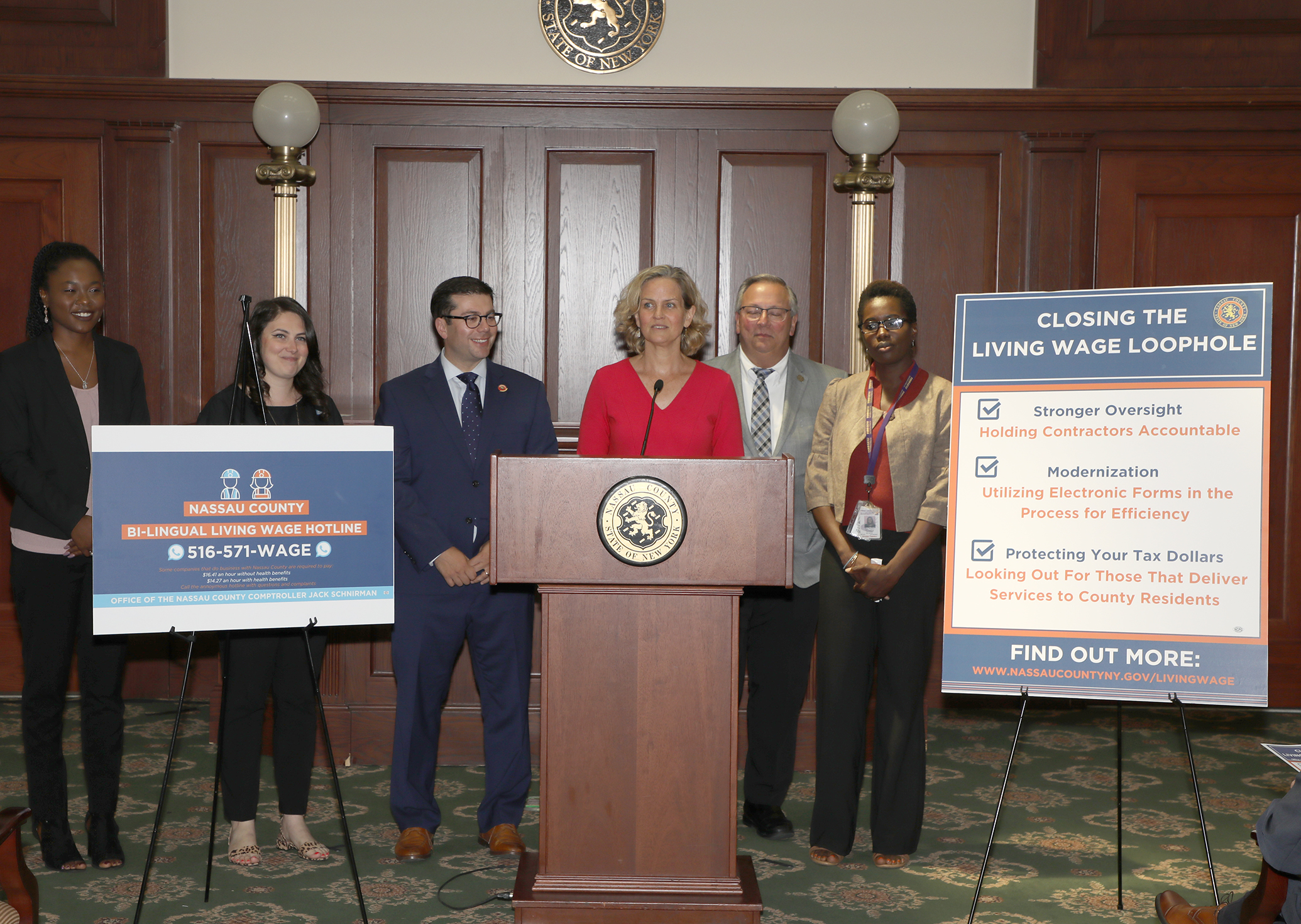Nassau County Executive Laura Curran strengthened the county’s living wage law last week, closing a loophole that allowed unqualified vendors to circumvent the law.
“Nassau is taking action to help working-class families and hold accountable the companies we do business with,” Curran said at a press conference last Wednesday with Nassau County Comptroller Jack Schnirman and John Durso, president of RWSDU Local 338 and chairman of the Living Wage Advisory Board.
“The loophole we closed today allowed companies to appear smaller than they actually were to avoid paying their workers a living wage,” Curran said.
The county implemented a living wage requirement in 2007 that requires businesses with county contracts to pay their employees more than the minimum wage.
As of last August, the county’s living wage law requires county vendors to pay their employees $16.41 an hour without health benefits and $14.27 with health benefits.
The law’s purpose was to ensure that employees of county vendors are earning a living wage, receiving health benefits and getting an appropriate number of days off, the county executive’s office said.
Under the law, a county vendor’s full-time employees are eligible for 12 paid days off for sick leave, vacation or personal necessity.
Businesses are eligible to waive the living wage requirement if there is a small wage gap between the highest and lowest paid employee or if the hike would result in a 10 percent increase to the company’s overall budget.
A vendor’s related entities were not previously considered when determining whether the company qualified for a waiver.
Many companies who were seeking contracts with the county would form a small subsidy that met the qualifications for a waiver in order to avoid the living wage requirement.
The changes to the law allow the county to review a vendor’s parent company and related subsidiaries as well as their compensation when determining waiver eligibility.
“If you want to do business with Nassau County, you have to play by the rules, and closing this loophole will protect workers who deliver critical services to Nassau County residents,” Schnirman said.



